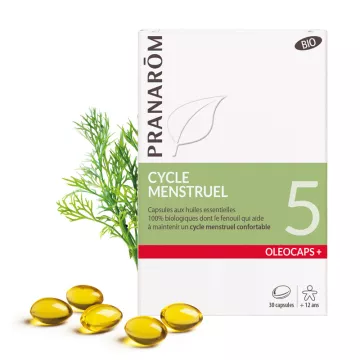



Premenstrual syndrome (PMS ) is a group of symptoms that affect many women, usually occurring a few days before the onset of menstruation. These symptoms can be physical, such as cramps, headaches or breast tenderness, but also emotional, such as irritability or mood swings. PMS can vary in intensity from one woman to another, and can even change over the course of a lifetime.
The exact causes of PMS are not fully understood, but they are often linked to hormonal fluctuations that occur during the menstrual cycle. Specifically, changes in estrogen and progesterone levels can influence neurotransmitters in the brain such as serotonin, which plays a key role in mood regulation and could contribute to the emotional symptoms of PMS.
The diagnosis of PMS is based primarily on the symptoms reported by the patient. It is useful to keep a symptom diary over several menstrual cycles to help identify recurring patterns. Healthcare professionals may also recommend ruling out other medical conditions that could mimic PMS, such as thyroid disorders or mood disorders, before making a definitive diagnosis.
Treatment options for PMS vary according to the severity and types of symptoms present. Non-pharmacological interventions include lifestyle modifications such as a balanced diet rich in calcium and vitamin B6, regular exercise and stress management. As for pharmacological treatments, doctors may prescribe oral contraceptives to stabilize hormones, or antidepressants for cases where mood disorders predominate.
Although complete prevention of PMS is difficult, it is possible to reduce the intensity of symptoms. Adopting a healthy diet, maintaining regular physical activity, and avoiding stimulants such as caffeine and alcohol can help. In addition, some studies suggest that supplements such as magnesium, calcium and B vitamins may be beneficial.
Yes, PMS can significantly affect quality of life. Symptoms, particularly when severe, can disrupt daily activities, social relationships and work performance. It's important for affected women to discuss their symptoms openly with their loved ones and healthcare professionals to find the most effective management strategies.
PMS can have a considerable impact on mental health. Hormonal fluctuations associated with the menstrual cycle can cause symptoms such as anxiety, depression and mood swings. These manifestations can be mild to moderate, but in some cases they become severe enough to disrupt a woman's daily activities. It's crucial to discuss these symptoms with a healthcare professional who can offer appropriate management strategies, including therapy or medication if necessary.
Yes, several natural treatments can help alleviate PMS symptoms. Among the most commonly recommended are magnesium supplements, which can help reduce fluid retention and cramps, and calcium, which has shown beneficial effects on mood changes and pain. Other approaches include the use of herbal remedies such as chasteberry, which has been studied for its potential to balance hormones naturally. However, it's important to consult a healthcare professional before starting any natural treatment.
Premenstrual syndrome and premenstrual dysphoric disorder (PMDD) are related, but PMDD is considered a more severe form of PMS. While PMS includes symptoms that can negatively affect a woman's life, PMDD symptoms are more intense and can include severe depression, suicidal thoughts, and significant impairment of daily functioning. Diagnosis and treatment of PMDD often require the intervention of mental health specialists and the use of specific therapies.
Diet plays a crucial role in managing PMS symptoms. Diets rich in complex carbohydrates, fruits, vegetables and whole grains can help stabilize blood sugar levels and reduce symptoms. It is also recommended to limit salt intake to reduce water retention, as well as to reduce saturated fats and simple sugars, which can worsen symptoms. The addition of foods rich in omega-3 fatty acids, such as oily fish, can also help moderate inflammatory reactions and improve mood.
For some women, PMS symptoms improve with age and may even disappear completely after menopause, when hormonal fluctuations stabilize. For others, however, symptoms may remain constant or even intensify until menopause. It's important for women to monitor their symptoms throughout their reproductive life, and to discuss any significant changes with a healthcare professional to ensure that symptom management is optimized for their overall health and life stage.